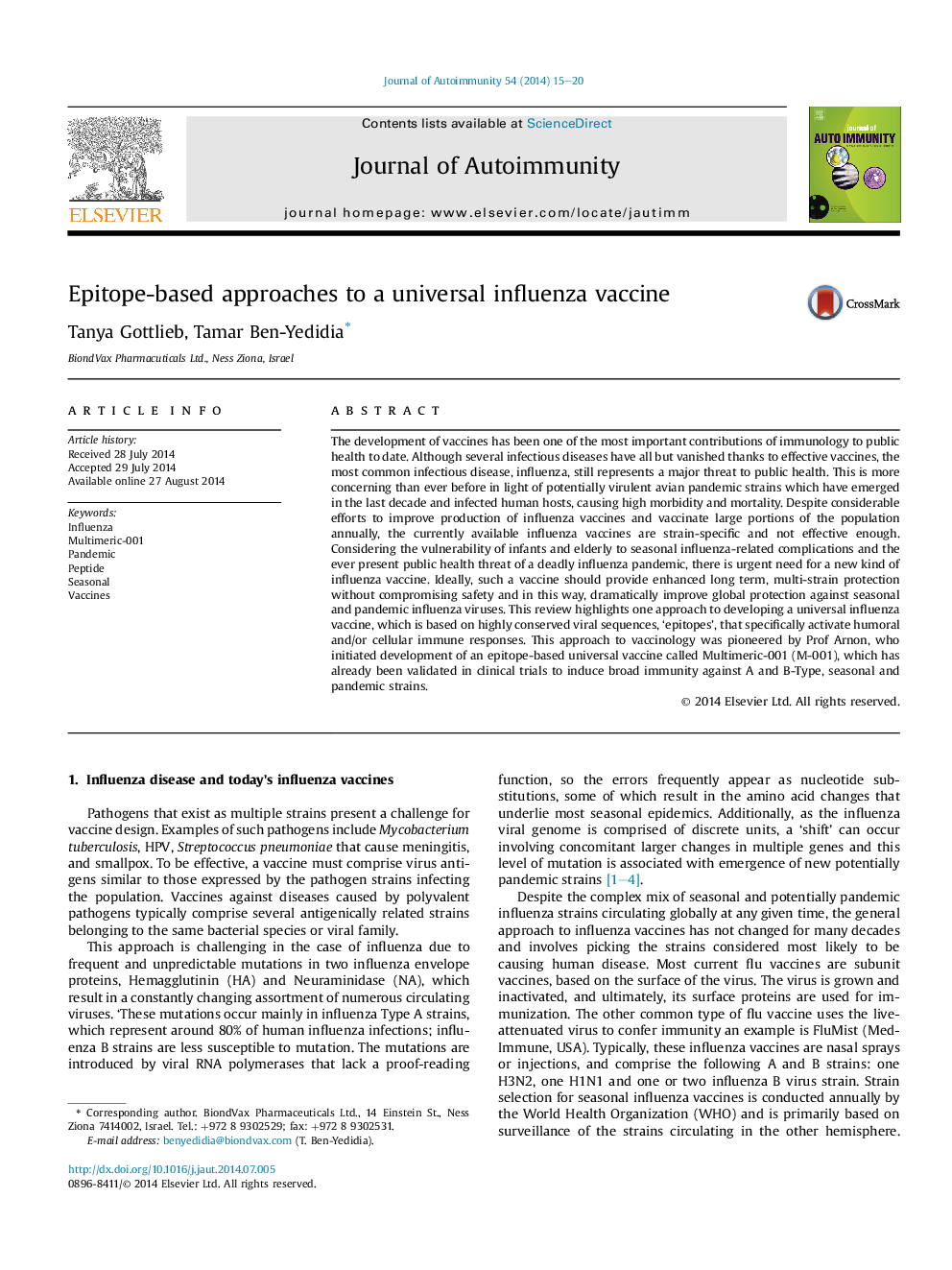| Article ID | Journal | Published Year | Pages | File Type |
|---|---|---|---|---|
| 3367780 | Journal of Autoimmunity | 2014 | 6 Pages |
•Challenges of influenza disease and currently available influenza vaccines.•Key economical and clinical benefits of introducing a universal influenza vaccine.•Rationale of epitope-based approaches to developing a universal influenza vaccine.•Prof Ruth Arnon's ground-breaking work on one vaccine candidate called M-001.
The development of vaccines has been one of the most important contributions of immunology to public health to date. Although several infectious diseases have all but vanished thanks to effective vaccines, the most common infectious disease, influenza, still represents a major threat to public health. This is more concerning than ever before in light of potentially virulent avian pandemic strains which have emerged in the last decade and infected human hosts, causing high morbidity and mortality. Despite considerable efforts to improve production of influenza vaccines and vaccinate large portions of the population annually, the currently available influenza vaccines are strain-specific and not effective enough. Considering the vulnerability of infants and elderly to seasonal influenza-related complications and the ever present public health threat of a deadly influenza pandemic, there is urgent need for a new kind of influenza vaccine. Ideally, such a vaccine should provide enhanced long term, multi-strain protection without compromising safety and in this way, dramatically improve global protection against seasonal and pandemic influenza viruses. This review highlights one approach to developing a universal influenza vaccine, which is based on highly conserved viral sequences, ‘epitopes’, that specifically activate humoral and/or cellular immune responses. This approach to vaccinology was pioneered by Prof Arnon, who initiated development of an epitope-based universal vaccine called Multimeric-001 (M-001), which has already been validated in clinical trials to induce broad immunity against A and B-Type, seasonal and pandemic strains.
